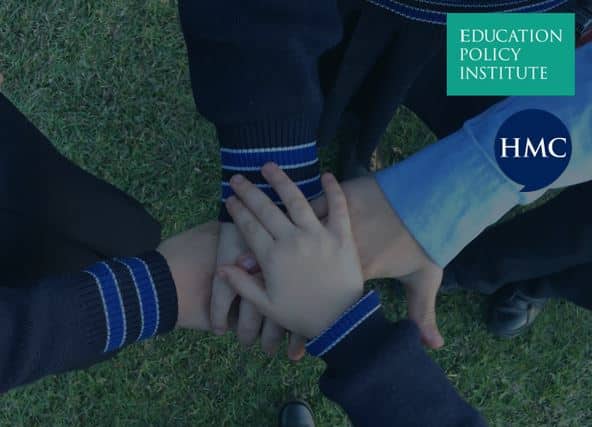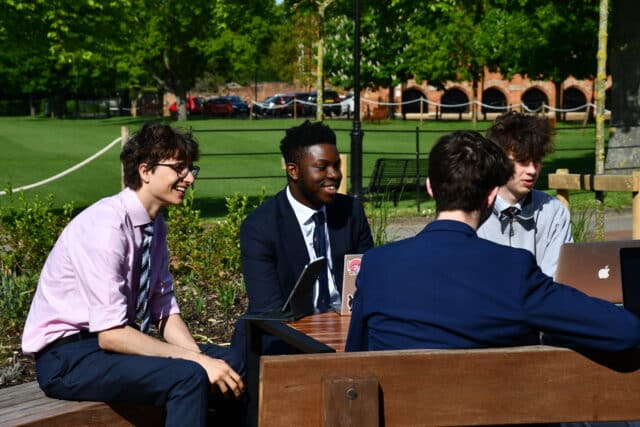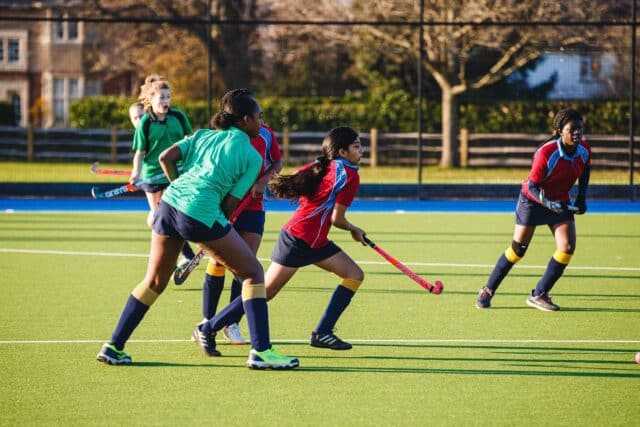Report
Independent-state school partnerships deep dive – A detailed look at the Bristol Education Partnership (BEP) and the York ISSP
Download the report

A new report by the Education Policy Institute (EPI), funded by HMC (The Head’s Conference), examines the workings, challenges and perceived benefits of partnerships between independent and state schools in England. The analysis specifically focuses on the working of two partnerships: The Bristol Education Partnership (BEP) and York Independent State School Partnership (ISSP). It highlights their strengths, identifies potential areas for improvement, and aims to provide insights to inform and support other ISSPs across the country.
Specifically the report finds that:
- The partnerships in both BEP and York ISSP offer pupils opportunities beyond the core curriculum, fostering personal and academic growth. In BEP, initiatives like Bristol Youth Talks (a TEDx-style competition) and the Oracy Pioneers Programme help pupils build confidence, enhancing their communication skills and supporting leadership and other essential skills development. The York ISSP broadens subject choices through Masterclasses in philosophy and criminology and offers GCSEs in Latin and Astronomy, broadening the curriculum offer for those who may not have access to these subjects otherwise.
- Teachers across both partnerships report benefitting from Continuing Professional Development (CPD) opportunities, enabling them to share knowledge and expertise across sectors. The BEP’s Bristol TeacherFest provides a space for collaboration and professional learning, while York ISSP allows teachers to design and lead sessions beyond their usual curriculum, often aligned with their specialist interests. Teachers highlighted that these experiences enhanced their teaching practice and strengthened professional networks.
- The funding models of the two partnerships differ significantly. The BEP is primarily funded by contributions from the independent schools, university partners, and Bristol City Council, while the York ISSP relies on equal financial contributions from all schools. This shared funding model can create challenges for state schools, as even smaller contributions for cover teachers and TLR payments can be difficult to maintain due to tight budgets.
- ISSPs may face initial challenges in pupil integration due to differences in school uniforms, facilities, and backgrounds, which can lead to perceptions of inequality. However, those involved in the Bristol Education Partnership, felt that continued collaboration through joint activities has strengthened relationships, promoted inclusivity, and fostered a shared sense of community, with pupils building friendships across school sectors.
- Staffing and resource constraints hinder equitable participation in both partnerships. In York, activities are mainly held outside school hours, creating challenges for pupils who rely on transport and parental support. In BEP, activities scheduled during school hours place strain on state schools with limited staff and resources. These barriers disproportionately affect state school pupils, limiting the partnerships’ ability to achieve their intended broad and inclusive impact.
The report recommends that:
- Partnerships should improve accessibility and engagement by ensuring the stated aims of the partnerships align well with the benefits available, clearly communicating opportunities and targeting outreach to pupils and parents who may benefit the most or are initially less motivated to participate.
- They should focus on exploring alternative funding sources, including philanthropic contributions and grant funding, to reduce reliance on individual school budgets and ensure long-term financial sustainability.
- Partnerships should recognise and address perceptions that can hinder integration among pupils from different school backgrounds, including the impact of school uniforms at joint activities.
- ISSPs should consider expanding leadership and coordination within partnerships by diversifying leadership roles and creating dedicated staff positions to support ongoing efforts. This approach will reduce reliance on a single central coordinator, who is often overstretched, and ensure continuity by involving more teachers and school leaders in the process.
- The partnerships should further leverage their relationships with local universities, councils, and other local organisations, such as the Merchant Ventures in York ISSP. These connections provide beneficial third-party, neutral spaces for events and expert contributions to various activities, enhancing the overall impact and reach of the programs.
- They should look to develop more effective methods for measuring impact by engaging independent evaluators and implementing structured feedback mechanisms. Both partnerships highlighted a desire to better measure and understand their impacts on staff and pupils. Currently, impact assessments rely on feedback from teachers, pupils, and families due to the small-scale nature of activities. While isolating the impacts of small-scale interventions is challenging, as the partnerships grow, it would be useful to scale these assessments, demonstrating their value and informing future policy developments.
Helen McGlade, Partnerships and Policy Innovation Manager at the Education Policy Institute said:
“From Heads to pupils, the participants we interviewed were positive about the partnership activities and its benefits. The challenges raised predominantly focused on operational issues such as staff time, access and transport. However, these challenges did appear to disproportionately affect state school participants.
In future, while it is difficult to isolate the impacts of these small-scale interventions, it would be useful to scale measurement of engagement and impact, both for the benefit of participants and to inform policy. It would also be useful to consider whether stated aims align with the benefits available and how to better target activities towards pupils that need them most.”
Dr Simon Hyde, General Secretary of HMC, said:
“HMC is proud of the outstanding partnership work undertaken by our member schools alongside their state school partners for the benefit of all children in the communities that they serve.
Equally it is important that we don’t think we know all of the answers, or recognise that we can’t get better, that’s why we have asked a respected, independent organisation in the form of the Education Policy Institute to hold a mirror up to the work we do.
We learn by holding ourselves up to scrutiny, that is the way we improve outcomes for all children and young people. This is a starting point, not an end one.”
Background
There has been increasing interest in and encouragement of partnerships between independent and state schools over the past decade. The aim to increase partnership working between the two sectors has been set out in various government policy papers, including the 2018 response to the ‘Schools that work for everyone’ consultation and the 2018 ‘Joint understanding between DfE and Independent Schools Council’.
This report is based on visits to two Independent-State School Partnerships (ISSPs)—the Bristol Education Partnership (BEP) and York ISSP. It includes the insights from the interviews with headteachers, teachers, coordinators, and pupils on how these partnerships operate, funding structures, challenges, and perceived benefits for both independent and state school communities.
To note, whilst some of the challenges the partnerships face and benefits they confer are similar, they are distinctly different in their practices and aims, and many of our observations are context specific.
ENDS
For further information and to arrange media interviews
For Education Policy Institute (EPI) – [email protected], 0207 340 1168
Notes to editors
The Education Policy Institute is an independent, impartial, and evidence-based research institute that promotes high quality education outcomes, regardless of social background. We achieve this through data-led analysis, innovative research, and high-profile events. Find out more about our work here.
This report is funded by the HMC (The Head’s Conference).
HMC (The Heads’ Conference) is an association of heads at some of the world’s leading independent schools. Founded in 1869, HMC was the world’s first association for headteachers and currently consist of over 300 members in the British Isles – educating around 300,000 pupils – and around 70 further members across the globe.


